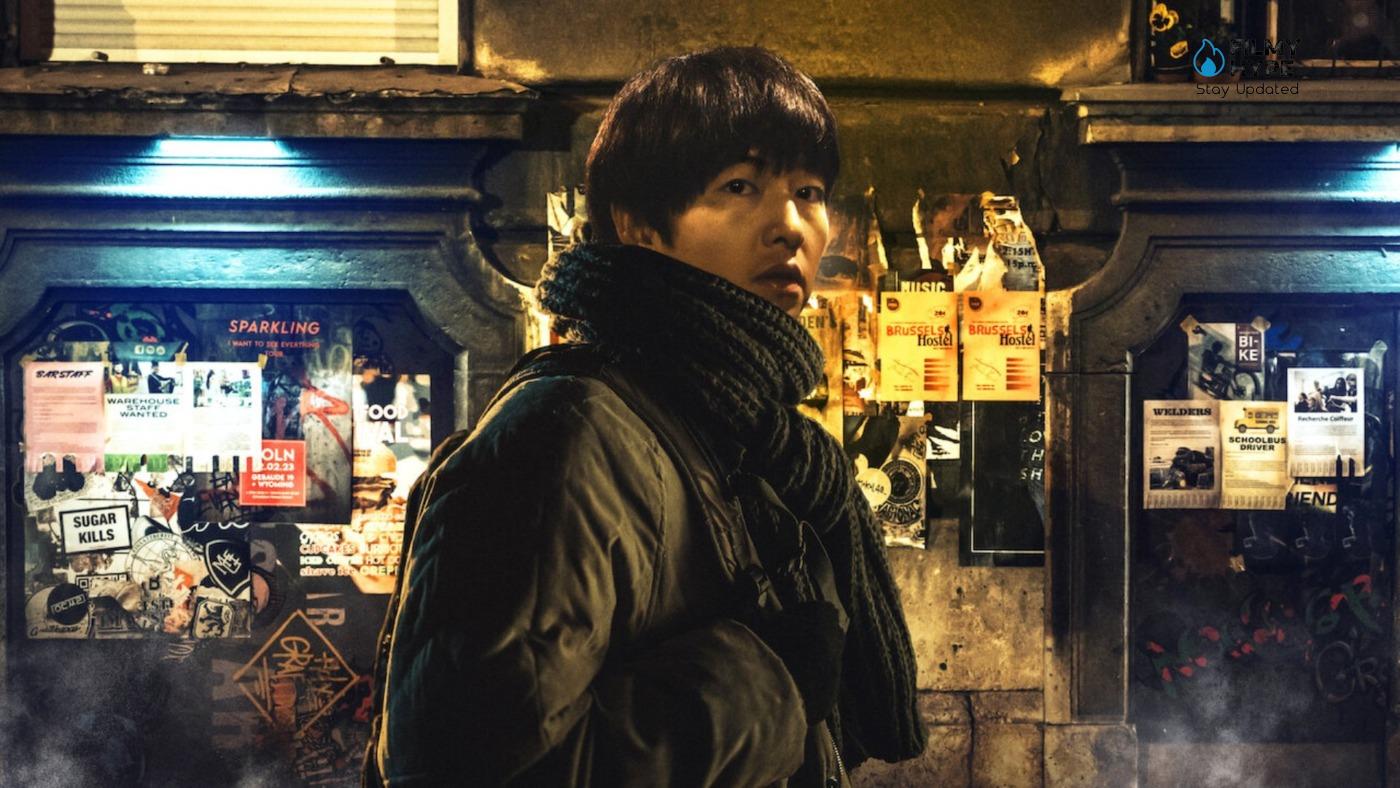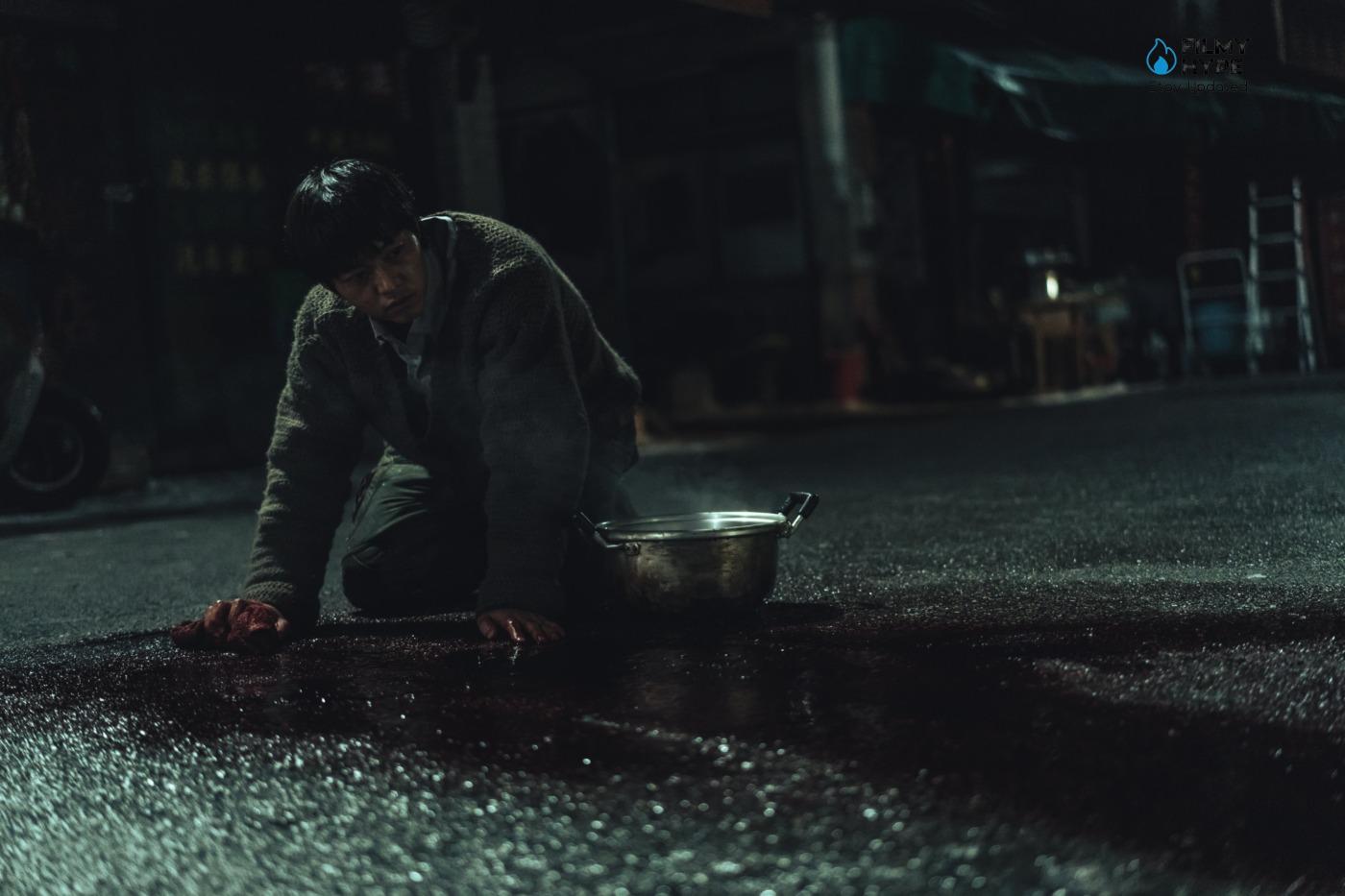My Name is Loh Kiwan Review: Offers Strong Performances and a Realistic Look at The Refugee Experience
Cast: Song Joong-ki, Jo Han-chul, Kim Sung-ryung, Seo Hyun-woo, Lee Sang-hee, Lee Il-hwa, Choi Sung-eun, Harry Szovik, Frédéric Clou, Kembe Sorel
Director: Kim Hee Jin
Streaming Platform: Netflix
Filmyhype.com Ratings: 3.5/5 (three and a half stars)
The new South Korean film My Name is Loh Kiwan by director Kim Hee-jin and based on the novel I Met Loh Kiwan by author Cho Hae-Jin, which is discussed, will be available on Netflix starting on March 1st. the life of a North Korean refugee in Belgium. If you love Korean cinema, especially dramas, or are interested in stories about refugees and don’t know if this new release could be for you, find out by reading our review. In My Name is Loh Kiwan, after the painful loss of his mother, Kiwan, a wanted North Korean defector, decides to leave China to honor his mother’s last wish: to have a new beginning and find a place where he can finally reclaim his name, living with freedom and dignity. Using his mother’s last savings, Kiwan leaves for Belgium to request asylum and therefore obtain refugee status. However, bureaucracy proves to be an insurmountable obstacle and he soon finds himself stuck in a limbo that makes him a ghost in the eyes of the Belgian state.

So, without a roof or a means of support, he wanders the streets waiting for a new opportunity until one day, Kiwan’s destiny takes an unexpected turn when he comes across Marie, a young woman of South Korean origins. Once a proud athlete of the Belgian national shooting team, Marie now battles not only her own inner demons and family traumas but also her addictions and some legal issues. From an unfortunate meeting, the two young people begin to establish an increasingly deeper and more intimate bond, finding comfort in each other and, as time passes, regaining the desire and hope for a second chance in life. This is the moving and romantic story told in My Name is Loh Kiwan (original title 로기완), the K-movie written and directed by Kim Hee-jin, based on the novel by Cho Hae-jin (I Met Loh Kiwan) and available from March 1st on Netflix.
My Name is Loh Kiwan Review: The Story Plot
Loh Kiwan (Song Joong-Ki) is, as anticipated, a boy of North Korean origin, who fled his country of origin with his mother first to China and then to Belgium. There, he will find himself completely alone and we will follow his events, and his difficulties, as well as discover his past life, thus learning how he found himself living there, as well as what happened to his mother. In the meantime, he will meet Marie (Choi Sung-eun), a South Korean immigrant with a rather complicated life with whom he will establish a troubled but intense relationship, narrated in a way that is not at all obvious. We therefore talk about the life of a refugee, but in a rather innovative way and showing all the rawness of his life, in which there never seems to be a place that he can truly call home. Is there ever peace, is there a place in the world for people like him or like Marie, what is a home? These are the questions the film asks itself.
My Name is Loh Kiwan Review and analysis
From a technical point of view, the film was made with great care. The direction is simple but very careful and allows you to perfectly experience every state of mind of each character, focusing a lot on the environments and the expressions of the actors and adapting to the rather slow pace of the film. The soundtrack can be defined as equally simple and delicate, consciously barely perceptible but which has an impact on every scene in which it is present, and without it, many sequences would not be as impactful. The photography is also striking, adding value to an aesthetically valuable production. The sets also contribute to raising the technical level of the film. They are mostly quite simple but can also be contextualized to the type of story and are always perfect for the place in which the scene is taking place, they almost tell a story on their own, even without words. The acting performances are also excellent, especially those of the two protagonists, but the secondary cast is also of a high level, in particular, Wael Sersbou stands out as the evil Cyril, a man from whom Marie tries to escape.

Direction and performance form an excellent combination that allows the spectator to empathize with the characters, to understand their emotions and their motivations. Overall, compared to other K-dramas, this one is a little more “sober”. This is probably due to the seriousness of the themes it deals with, but there are no overly dramatic scenes accompanied by particularly solemn soundtracks, except for a couple of sequences towards the final part. For the rest, it is quite different from the genre. The film’s primary objective is to tell about the protagonist’s raw daily life and his tragic past and to do so it takes his time, at a rather slow pace. However, this pace sometimes becomes excessively slow even in scenes in which it is not justified, such as in particularly dramatic sequences that cannot be fully appreciated as there is slowness, which in these cases is not exactly justified.
A slight increase in pace would probably have made them better. Another flaw is that, without giving away spoilers, something happens in the final part that seems a little detached from the rest of the film and which, although it respects the message that the film wants to send, arrives a little suddenly and that shouldn’t have happened to that character, but to the protagonist. Despite a couple of flaws, the film overall is more than convincing from a screenplay point of view. After conquering the Netflix audience in the role of the mafia anti-hero Vincenzo Cassano, the actor Song Joong-ki now takes on the role of the courageous and resilient Kiwan, demonstrating all the talent and charisma that distinguish him. His interpretation – so sincere, authentic, and emotional as to convey pain and hope even with the simplest look or expression – convinces and enchants the viewer, who cannot help but empathize and root for his happiness. Kiwan, so noble, altruistic, and innocent, does not simply embody the struggle and suffering of a deserter, but also that of all those who flee their homeland trying to conquer a better future.

By bringing Kiwan to the small screen, the director aims to raise a crucial question: the Europe that “welcomes and opens its doors to those in difficulty”, so celebrated and proud, actually hides intricate bureaucratic labyrinths that often mercilessly abandon those who are desperately trying to survive. In contrast to the character of Kiwan, there is that of the mysterious Marie, played by the actress and singer Choi Sung-eun (known for the fantastic K-drama The Sound of Magic), a character who cannot be defined as equally positive. Marie appears to the public as her antagonist: a young woman who, unable to process the pain of losing her sick mother, chooses to cancel and self-destruct by following the path of illegality and drugs. Marie deviates from the traditional female characters of Korean dramas: with a style characterized by smokey eyes, dark clothes, and a fake superficial and indifferent attitude, the character of Sung-eun shows a complexity and problematic nature that, unfortunately, fails to be explored enough in just two hours of viewing.
In other words, Marie’s one-dimensional and victimized characterization partly disappoints the viewer, thus resulting in her being less appreciated than she should and deserves. If in the first part of the film director Kim Hee-jin lays the foundations for a heartbreaking and reflective story of immigration and poverty, enriched with pathos and social criticism, from the meeting between Kiwan and Marie the plot takes a different direction. Here, the controversial and tender love story of the two young people is introduced, where the lives of Kiwan and Marie are shown as two shabby tracks destined to continually converge and move apart to allow them to continue the “journey” and seek salvation. However, despite the sweetness, purity, and touching nature of their love story, this turns out to be too abrupt and hasty, suddenly interrupting the realistic atmosphere created in the introduction and paving the way for a vision more similar to that of melodramatic fiction. Furthermore, Marie’s introduction also impacts the story arc, transforming the narrative from a realistic and intense vision to a completely emotional and romanticized one.

Despite the criticisms and limitations previously mentioned, My Name is Loh Kiwan establishes itself as an engaging and heartbreaking melodrama that goes beyond the simple narrative of love capable of giving the strength to “save oneself”. Kim Hee-jin’s film sheds light on the importance and privilege of being able to live without fear, carrying one’s name with honor (as Kiwan’s sweet mother promises), an invaluable symbol of one’s identity, origins, and family history. Finally, in addition to exploring the personal, family, and social challenges faced by the characters, Kiwan and Marie’s story develops as a turbulent emotional journey that celebrates the strength of individuality and the great courage of wanting to start again.
My Name is Loh Kiwan Review: The Last Words
Despite the criticisms and limitations previously mentioned, My Name is Loh Kiwan establishes itself as an engaging and heartbreaking melodrama that goes beyond the simple narrative of love capable of giving the strength to “save oneself”. Kim Hee-jin’s film sheds light on the importance and privilege of being able to live without fear, carrying one’s name with honor. Overall, “My Name is Loh Kiwan” is a thought-provoking film worth considering if you’re interested in a character-driven drama with a realistic portrayal of a refugee’s experience. If you’re looking for a lighthearted watch, this might not be the film for you. In conclusion, My Name is Loh Kiwan offers strong performances and a realistic look at the refugee experience. However, the genre-blending and uneven pacing might not appeal to everyone.







